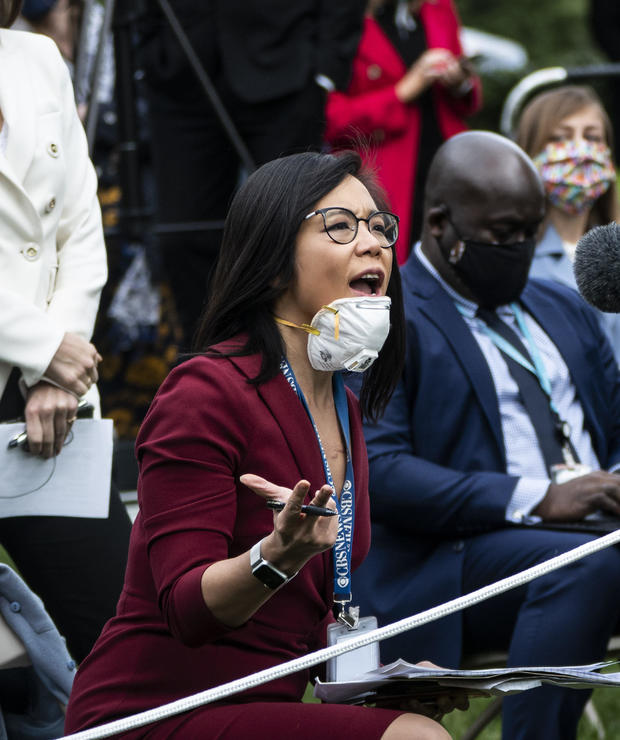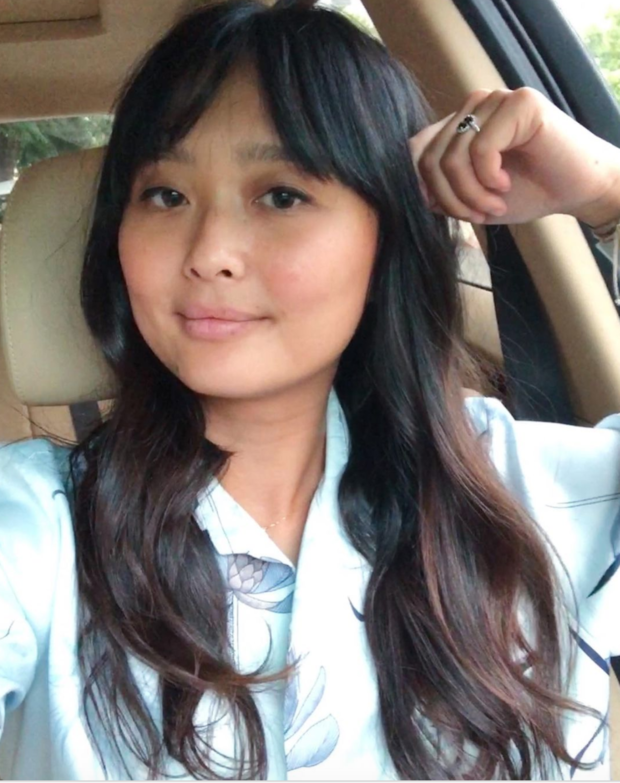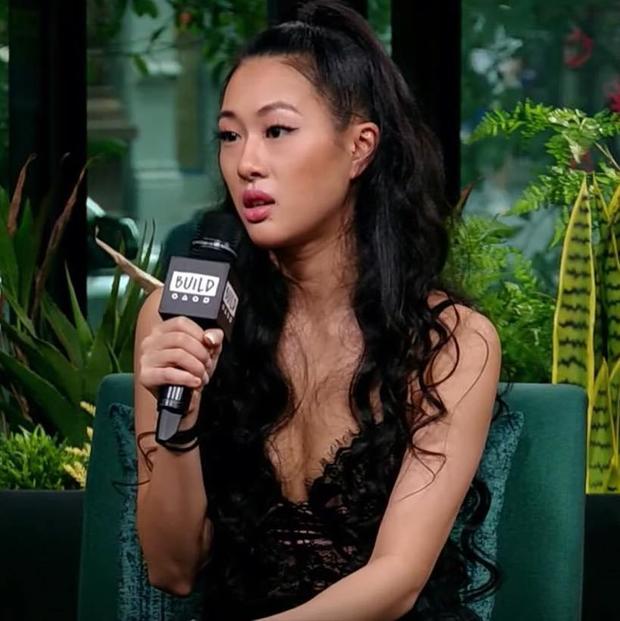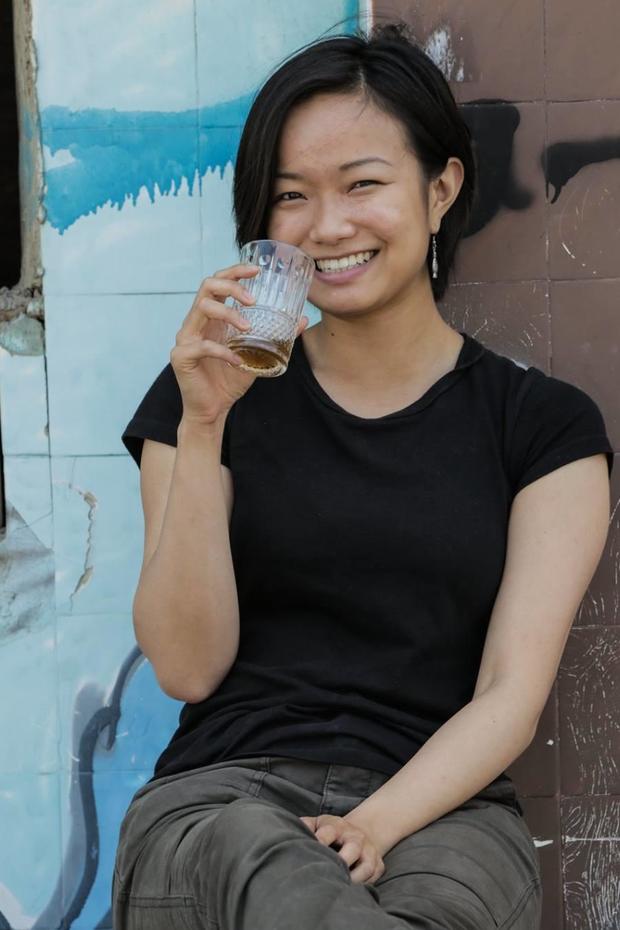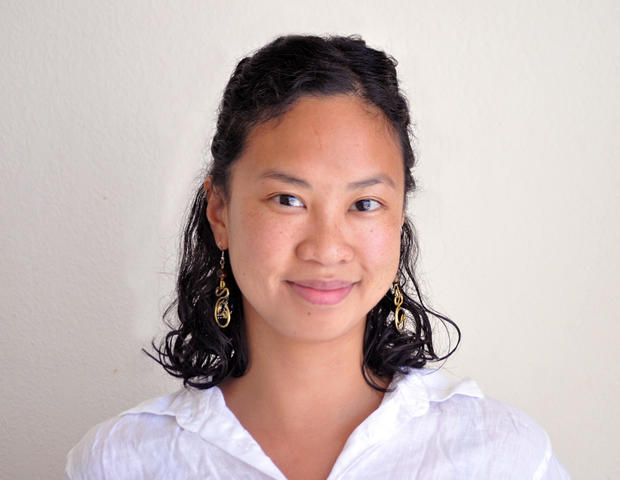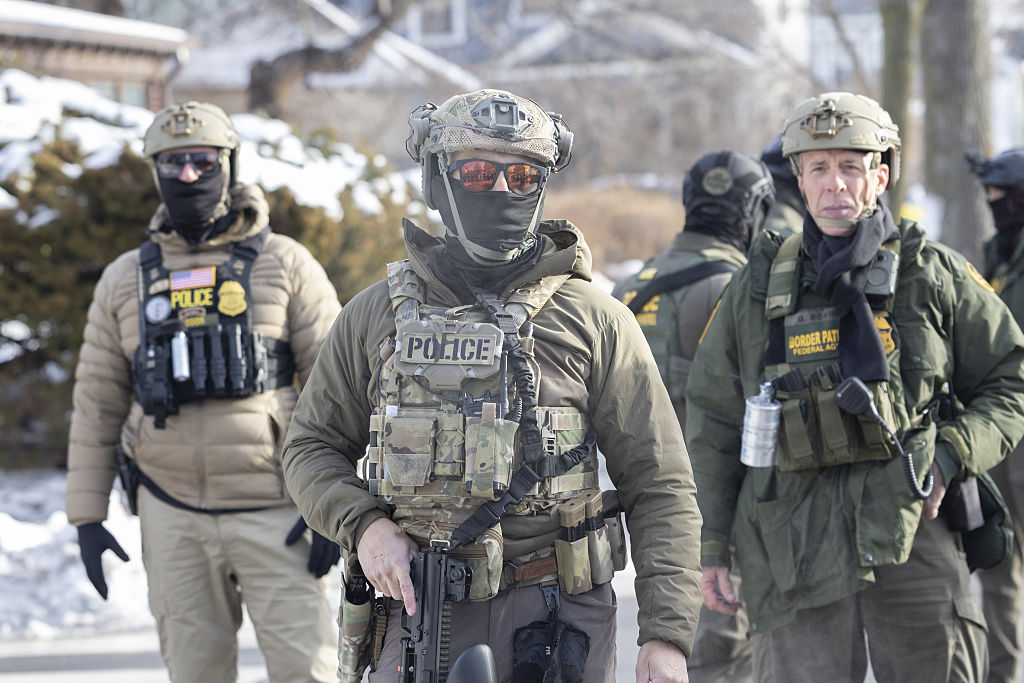Asian American journalists on what it's like reporting on the pain in their community
The Asian community has been the target of a startling rise in violence throughout the coronavirus pandemic. Asian American journalists are now facing the burden of reporting on the pain of their community, while still experiencing and processing that own pain for themselves.
Asian American journalists have fought to cover the recent fatal shootings at Atlanta-area spas, where eight people were killed, including six Asian women. Some have been met with resistance and rejected when asking for nuanced coverage in newsrooms where they're often underrepresented, according to the Asian American Journalists Association.
"The professional challenges for AAPIs are complicated and rooted in systemic problems. The range of concerns raised by our members are deeply concerning, and we urge newsrooms to listen to, learn from, and advocate for their employees," the organization said in a statement.
CBS News spoke with six Asian journalists about how they balance self-care with reporting on the violence, why newsrooms need more diversity and what happens when tragic news takes place in your own community.
"It is our job to provide the most context possible"
Weijia Jiang is the senior White House correspondent for CBS News.
CBS News: Are there difficulties that come with being such a prominent and recognizable Asian American journalist right now?
I think it doesn't have to do with how recognizable someone is, I think it has to do with the relatively low number of Asian American journalists who cover the White House, who cover certain beats. When you are one of a few, you carry a heavy burden to make sure that you are asking questions on behalf of people who don't have a voice and communities who are pleading for help and protection as the number of hate crimes against the community continues to surge.
Is there any pressure as a journalist to not aggressively call out racism in your reporting in favor of a more normative view?
I think that's failing at your job if you are giving in to any pressure to follow a narrative that does not reflect the personal experiences and views and perspectives of people who have a stake in the story that you're telling. It is our job to provide different perspectives and understanding of a story. It is our job to provide the most context possible so people understand the story beneath the story.
There have been many times whereas a newsroom we have had to ask "Do we call this racist?' or "Do we characterize a phrase in a different way?" and I think I'm grateful that we have these really helpful conversations and are willing to call something for what it is.
As an example, when President Trump told four congresswomen of color to go back to the countries they came from, I remember very distinctly in our broadcasts, we said, "the president's racist remarks."
Do you think that boldness comes from your experience as a journalist or just from who you are?
I think what you're asking really stresses the importance of diversity in a newsroom. We have diversity in a newsroom not so we can look all different from each other but so we can bring our perspective and our shared experience and our lived experience to the table when we're having editorial conversations about how to cover something.
As a journalist, I'm able to separate that from the objectivity of a story, but I am who I am because of my race, because of my socioeconomic background, because of where I grew up. So, that's what makes me an asset. That's what makes each journalist an asset because we have different backgrounds and different views and that should be part of the conversation as we're talking about what stories to cover and how to cover them.
Was mental health something you had to learn to manage? Why is it important?
It's so easy for us to just focus on the work and the work and the work and to not take time for ourselves to think about how the work is impacting us on a personal level. As I became older, I realized dealing with that and confronting how it's impacting you actually make you better and more productive. Because you don't have to carry the weight of how this is personally affecting you. You can manage that and take care of yourself and ultimately that will make your work better. So it's really important to take time for yourself and reflect on what you're doing every day, rather than just allow the work to eat you alive.
"It's exhausting"
Connie Wang is the executive editor at Refinery29.
How are you feeling right now?
I think that I'm feeling both very depleted and very energized, which is I guess contradictory. I think that a lot of journalists who go into journalism are really fueled by the work.
When there is outsized attention on your beat that you cover, there's a lot of movement, there's a lot of attention, there's a lot of urgency around it. But at the same time, when it directly affects you and your personal life, because it's an expression of your community, it does feel very emotionally taxing.
I kind of see it just like a big tank of gas and the pedal is to the floor. The gas is to the floor as I'm driving as fast as I can and using up all my gas. But I'm also feeling, I think, as I'm going along. So it's exhausting.
How do you balance your work with your mental health?
It's impossible to divorce your own personal sorts of reactions and memories and feelings. The thing that I always come back to is, how do I focus on the story and the people at the center of the story? I am not the story here.
But of course, it's difficult because this is my community. These are people who look like my family and these are jobs that my family members have worked in the past. Even though this is not a world that is mine, that is the world that I have been a part of.
How can newsrooms support Asian journalists?
One thing I think that people can do is to be very careful about tokenization.
It becomes a problem when it means that no one else in the newsroom knows how to cover Asian American issues because the — usually one or two — Asian American people on staff are the ones doing it all. I think that's a really important thing.
If you are going to be covering Asian American issues, everyone on the team should be able to do it. And that means understanding the history, understanding the conversations that Asian Americans are having with one another, understanding sort of what we look like because we are not a monolith."
"If I let myself think about it too much, it'll unravel something"
Kimmy Yam is a reporter for NBC Asian America.
How have you been feeling during your reporting?
I think whenever something like this happens, reporters and even if you're a person of color, the expectation is you jump into action and you bring a lot of vivid experiences to the newsroom and to be able to navigate sensitivities around race. I think for me it's been really difficult.
As an Asian woman, it's just so hard to process. And I've felt like if I let myself think about it too much, it'll unravel something that I don't want to unravel and then I can't get back into the work, you know? It's like a slippery slope. I think it's something that I need to do in the coming days. But I also know that I have a job to do.
How have you balanced work and your mental health?
It's been difficult.
It's hard being a woman of color journalist on the Internet. It just is. And if your newsroom doesn't necessarily see the value in your work, then you're fighting a lot of these trolls and all that harassment that really comes with just being a woman doing her job on the Internet. I've definitely broken down in the past and just lost it. You can go through very, very dark periods like that.
I feel extremely supported this time around. I feel like people really care about me as a person and also care about work and getting it right. But I don't think that all newsrooms are like that.
Do you think that lack of support could lead to fewer AAPI journalists in the workplace?
Yes, I mean... there's a mentality in the industry where you give absolutely everything you can give in those early years and you're not allowed time to process things. You're not allowed time to really take things at the pace that you need to be taken and I don't necessarily agree with that.
I do think that people don't stress enough how taxing a lot of this work can be. You don't have people checking in on you and if you don't have friends or even people outside of the industry that really care about you and that understand the weight of what a lot of these reporters are carrying, especially when it comes to race... So there is a huge amount of pressure to get things right and a huge amount of pressure to really do good for your community — all of that definitely adds up.
'It's an ongoing process"
Ashley Wong covers the Asian American and Pacific Islander community for The Sacramento Bee.
How has this recent violence made you feel?
I was pretty shaken (after the Atlanta shooting). I think part of it was because my job is to engage with the news nonstop, especially when it comes to hate crimes against Asian Americans. I think when the news first broke earlier in the week, the way that I felt was more numb than anything.
The more that I kind of did coverage of the attacks and kind of gathered local reactions in Sacramento's Asian American community, the shakier I ended up feeling, having other people's feelings of fear and anxiety repeated back at me. All of that kind of made me feel pretty shaky today.
How do you deal with emotions like that while you're working?
What I do is compartmentalize. I try to keep all the work within a tight nine-to-five window. When I'm not at work or writing or interviewing someone I've been going for midday walks, just kind of anything to kind of separate my mind from my work, is what I guess what I've been trying to do. It's an ongoing process, honestly."
Have you found things more stressful because of the pandemic?
For sure. I remember early in the pandemic when states were still debating "should we tell people to wear masks? Should we not tell people to wear masks?" I was kind of wrestling with whether I should encourage my parents to wear masks because on the one hand, I wanted them to protect their health and other people's health.
On the other hand, I was afraid of them being targeted. If they were older Asians in public wearing masks, would that put a more significant target on their back? And I personally have not experienced that concern as much recently, but definitely and early in the early months of the pandemic, that was a big fear.
"You're the person with the voice"
Irene Jiang is a reporter for the Voices of Color vertical at Insider.
What has been the hardest part of your coverage in the past year?
In the past year, there was always that feeling of no one really cares and no one's paying attention outside of the community. It was always really frustrating to see that major news outlets did not cover a lot of the violent incidents that happened to Asian Americans. That was really frustrating.
But recently it seems like people have started to pay more attention, which is good on one hand because that's attention that we really wanted before it started happening. But at the same time, of course, it's because more bad things are happening. So it's kind of like a really bittersweet I told you so.
How do you practice self-care?
I try to log off at 6 o'clock every night, but the truth is, that isn't what happens.
I take a lot of baths. I probably rely a little bit more than I should on my after-work drinks, and I've been watching a lot of television lately. I don't know what's in it for me, like, a palate cleanser at the end of the day, where their concerns are just so different from my own. I can unplug a little, but it's still been hard.
Do you think there's something specific to journalism that makes managing mental health more of a struggle?
I don't want to say journalists have especially bad mental health issues, but I do think that as journalists, we are exposed to a lot of trauma. I'm relatively lucky in that regard because I'm not out on the ground, on the scene of these kinds of reporting. I'm not seeing the worst. I'm not in a war zone.
I think that there is that amount of stress and also responsibility like the sense that you have a responsibility to do right by your community because you're, for some reason, the person with the voice.
"I'm writing on a short fuse"
Sarah Belle Lin is an independent journalist based in Oakland.
How have you been feeling?
Well, it's been a whirlwind of emotions and my energy fluctuates from being completely burnt out to energized and inspired to figure out a way I can contribute and help affect positive change. Even in the direct aftermath of such a tragedy, I still feel obligated to act while also practicing self-care.
Last night, I barely slept, I had the lightest sleep that I've had in years, and so I know I'm going to crash sometime by the end of the day. Right now, I'm just trying to stay lifted and positive and look at all of the really passionate and inspiring dialogue from my Asian sisters and feel driven to be a part of that.
How do those strong emotions affect your work?
I would say the emotions have always driven and fueled my work. My work centers survivors, victims of inequity, racism, discrimination, environmental injustice. I've always let my feelings of grief, trauma, sadness, anger, rage drive my work. And hopefully, that passion is evident in the narratives that I choose to focus on, in the platforms that I want to uplift and the people who I want to center in my work,
Obviously, I'm writing on a short fuse and I don't know how long I can let these very strong emotions drive me forward until I crash and burn. I'm just taking it minute-by-minute, hour-by-hour. Hopefully, there is a new horizon in the sense of new spaces created for me to channel my energy and renew my energy and refuel.
Do you think the news cycle will stop caring about this work?
I think there's so much going on in the world and it's important to know where you stand and how you want to contribute to that movement that's occurring at that time. If people are crying out collectively asking for recognition and acknowledgment, then that's what the news should focus on. And that's from the local to international level, because it's clear that this movement isn't going anywhere anytime soon.
And it's best that people put on their thinking caps, and practice some active listening and also know what people are asking for.
Do newsrooms have a responsibility to help their AAPI reporters cope with such intense stress?
100%. We may be seeing some, quote-unquote, diversity initiatives from newsrooms big and small for not just Asian Americans, but also black and brown and indigenous journalists, too. But even today, we're not seeing a make-up in newsrooms across America that represents the current racial demographics of this country.
There is no safety net in newsrooms and that's something that I've experienced myself recently as an independent journalist. There's even less of a safety net for myself. And so I not just worry about full-time staffers, part-time staffers, but also especially independent journalists and freelancers like myself who are scrambling to find some sort of safety net.
If you're not a part of an affinity group like AAJA or NABJ or NAHJ, then these are people who fall through the cracks. If they're not compelled or empowered well enough to voice out, then we risk losing them. We risk losing their vision, their voice, their perspective. And that's a loss for everybody.
CBSN will air the special "Asian Americans Battling Bias: Continuing Crisis" on Wednesday, March 31 at 6 p.m. ET.
